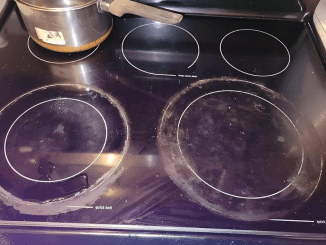Elon Musk’s Starlink is facing backlash after promoting “free” internet access for survivors of Hurricane Helene while charging $400 for the necessary equipment. As the storm left thousands in the South without power and connectivity, Starlink announced a temporary offer of complimentary satellite internet access. However, residents were soon frustrated to learn that this “free” service came with a costly catch. Let’s dive into the details of the situation and explore why many people feel misled by Starlink’s offer.
Starlink’s Promise of ‘Free’ Internet for Hurricane Helene Survivors

After Hurricane Helene ravaged parts of the South, Elon Musk’s Starlink, a subsidiary of SpaceX, announced on social media that it would provide free internet access for 30 days to those affected by the storm. Musk emphasized the role of communication during crises and retweeted a post stating that Starlink terminals would function automatically in affected areas at no cost. The offer generated widespread interest, with many applauding the tech billionaire’s apparent generosity in helping the storm’s survivors reconnect.
The announcement spread quickly, gaining millions of views on Twitter, as residents welcomed the idea of free connectivity amid the crisis. With phone lines down and internet cables destroyed, many saw Starlink’s offer as a lifeline—until they discovered the fine print.
The $400 Price Tag: A Bait and Switch?
While the internet service itself was advertised as free for the first month, Starlink neglected to mention that a satellite dish and other hardware, priced at $400, were necessary to access the service. This unexpected cost, along with shipping and taxes, left many residents feeling that Starlink’s promise was misleading.
Kinney Baughman, a resident of Boone, North Carolina, expressed his disappointment, calling the offer a “bait and switch.” He criticized the company for taking advantage of vulnerable individuals in the wake of a natural disaster. “The $400 for the dish, on top of the wait for shipping and installation, makes the offer much less appealing,” Baughman said, adding that residents might be better off waiting for their traditional internet service to be restored.
For those still without power, the issue is further complicated by the need for electricity to operate Starlink’s equipment. In some cases, waiting for utility services to be restored may be quicker than setting up the satellite service, rendering the $400 fee an impractical solution for many.
The Realities of Starlink’s Offer in a Disaster Zone
The timing of Starlink’s offer raised concerns about its effectiveness for those grappling with immediate needs. With thousands of homes still lacking electricity and infrastructure damaged by flooding, the additional burden of purchasing and installing Starlink hardware feels out of reach for many.
Baughman noted that even if residents manage to acquire the equipment, they face the added hurdle of getting it up and running in areas where basic utilities remain compromised. These factors underscore the challenges of implementing satellite internet in the aftermath of a storm, when survivors are often struggling with more immediate concerns, like access to food, shelter, and essential supplies.
Starlink’s Response: A Special Page for Hurricane Victims
In response to the outcry, Starlink established a help page specifically for those affected by Hurricane Helene. This page provides instructions for survivors interested in accessing the service, though it still highlights the necessity of purchasing equipment.

For current Starlink customers hoping to waive their service fees, the company requires them to submit a support ticket through the help page. However, Starlink has not disclosed how long it will take to process these requests or if any additional verification steps are involved. In the meantime, those without existing equipment must decide whether to invest in the $400 dish or wait for other recovery efforts to restore traditional connectivity.
Public Backlash: Criticism of Musk’s Disaster Response
The backlash to Starlink’s offer highlights the complex ethics surrounding corporate aid in times of crisis. Musk has spoken publicly about the importance of connectivity during natural disasters, and his company has previously extended support to areas impacted by hurricanes and wildfires. Yet this particular response has raised questions about whether the company’s priorities align with the needs of the affected communities.

Many residents and social media users believe that companies like Starlink should provide disaster relief without charging survivors high fees for essential equipment. Comments on Twitter range from disappointment to outrage, with users expressing the opinion that Starlink’s approach seems more like an opportunistic marketing ploy than a genuine humanitarian gesture.
One user tweeted, “It’s disheartening to see a ‘free’ offer that requires $400 up front. Survivors shouldn’t be exploited during such a difficult time.” Another added, “Charging for hardware in an emergency isn’t helping—it’s profiting off people’s desperation.” Such sentiments reflect the broader frustration many feel toward corporations that advertise assistance but fall short on delivering genuine aid.
The Importance of Transparency in Disaster Assistance

The controversy surrounding Starlink’s offer underscores the need for transparency in corporate disaster assistance efforts. When companies present services as free or discounted, the public expects that there won’t be significant hidden costs involved. In this case, Starlink’s failure to mention the required hardware fee upfront has led to accusations of dishonesty, further fueling public distrust.
Disaster survivors rely on clear information to make informed choices about their options for recovery. For those struggling to rebuild their lives, the ability to reconnect with loved ones, access emergency services, and obtain real-time updates can be a matter of life and death. In such circumstances, ambiguity about costs can add unnecessary stress to an already overwhelming situation.
Where Does Starlink Go From Here?

As criticism continues to mount, Starlink may need to reassess its approach to providing assistance in disaster zones. One possible solution could be offering hardware at a significant discount, or even lending equipment to communities on a temporary basis. These alternatives could help survivors access the internet without requiring a substantial upfront investment, while also showcasing the company’s commitment to supporting affected areas.
Additionally, companies offering disaster relief should prioritize transparency in their communications. Ensuring that all costs are disclosed upfront allows survivors to make informed decisions and reduces the risk of negative public perception. Starlink’s experience with Hurricane Helene demonstrates that even well-intentioned aid can backfire when there’s a lack of clarity around the true cost of the service.
Conclusion: A Call for Compassionate Corporate Responsibility

The response to Starlink’s “free” internet offer highlights the complex dynamics between corporate philanthropy and disaster recovery. As communities affected by Hurricane Helene work to rebuild, many have expressed disappointment that the offer of help came with a high price tag. While access to the internet is undeniably essential, the controversy surrounding Starlink’s $400 fee has sparked a broader conversation about the ethics of disaster aid.
In times of crisis, survivors need compassion, honesty, and accessible solutions—not marketing tactics or hidden fees. By prioritizing transparency and exploring more affordable options, companies like Starlink can play a meaningful role in helping communities recover. As the public calls for greater corporate responsibility, this incident serves as a reminder that words and actions must align to make a true difference in people’s lives.


